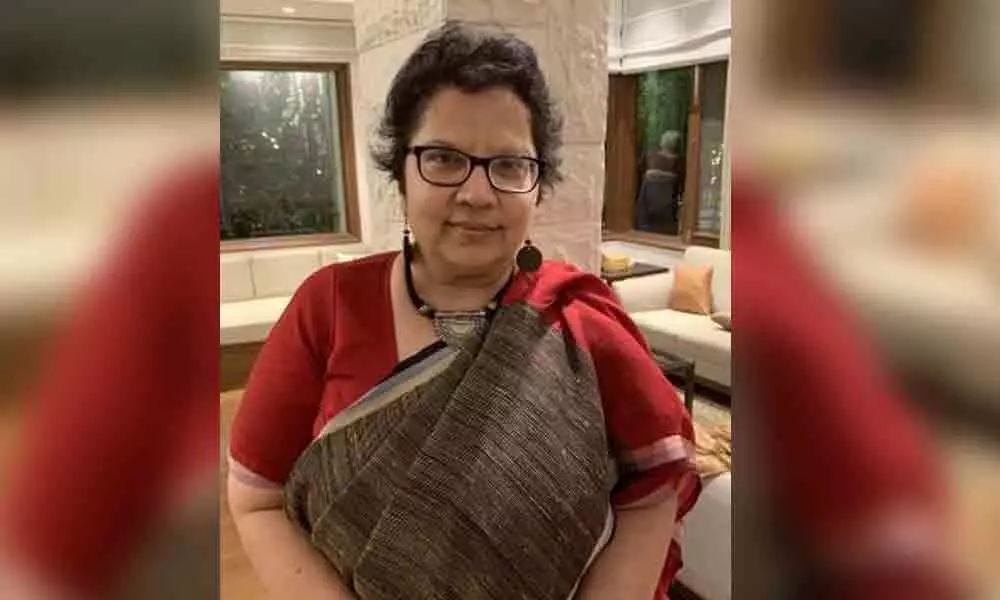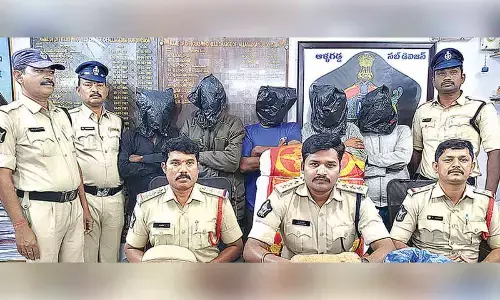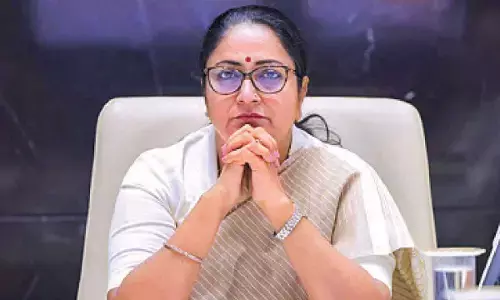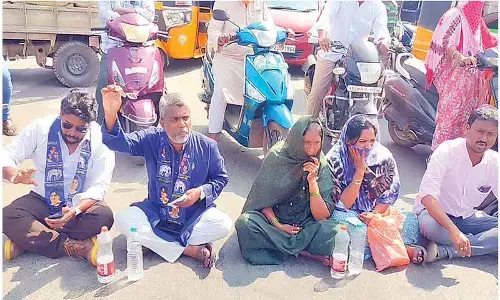Taking India to the moon

‘Behind every person, there is a woman’. And we could not agree more. India made waves globally by successfully launching ‘Chandrayaan 2’.
'Behind every person, there is a woman'. And we could not agree more. India made waves globally by successfully launching 'Chandrayaan 2'. The mission was crucial and 1.2 billion citizens of our country were pinning hopes on this mission. And why not, as it was catapulting our nation in the league of excellence.
Ritu Karidhal, Mission Director and Vanitha M, Project Director, the women behind Chandrayan Mission 2 put their heart and soul to make the launch a successful one. And with their grit and hard work, these two women scientist have achieved glory and propelled India ahead in the space race.
Author Minnie Vaid has penned a book titled 'Those Magnificent Women and Their Flying Machines' about the women in the mission. Minnie in the book writes about the struggles and hurdles, which this women team overcame to make this dream come true.
In a twitter chat with The Hans India, Minnie unveiled the inspiring story behind these amazing women.
"All my perceptions about them were shattered when I started meeting them for my research. Of course, I had a stereotypical image of them, but they turned out to be regular people who are juggling work and families together," the author shared.
"The challenges faced by these women were not ordinary. That's why they deserve to get the limelight. In fact, everyone in the country, male or female, should know who these 'magnificent women' are, as also the work they do.
I attended an IWN-CII seminar where these people spoke about their contribution– eloquently and matter of fact. I was spellbound and asked them later if I could write a book. They pointed me towards ISRO PR and that's how I began," Minnie said.
Minnie informed that during the research, Ritu, the mission director of Chandrayan 2, said that they worked in the day and leave home to take care of children and after finishing that they used to be up late in the night to study and prepare for the mission.
Wake up early send school children to school and go to the office to send the orbiter to the moon.
Minnie said that this statement of Ritu was engrossing and she was very confident on each word she said, despite such a difficult task. Space is a very unforgiving place and you can't afford to make any mistake you get one chance to try.
The mission had a lot of shortcomings like the funding issues, the mission was to be completed in a very limited time, yet the ladies were very cool and calm to manage. "Watching them at work were personal learnings for me, as their temperaments were remarkably composed," Minnie said.
"It's all about work and they did talk a lot about work-life balance, families, balancing act and gratitude towards their husbands," she added.
On the way to get permission to write a book, Minnie said, "It would be good if you write a book on ISRO but you should start when you're born (laughs).
Because it takes really long and tests your patience but once you get there after 4 or 5 months, the women were absolutely amazing and they asked me not to address them as women scientists but only as scientists. And that's true as far as the work is concerned they are selected on missions as per their merits, there's is nothing such as reservation but you have to put in your years."
When it comes to scientists, the gender gap is huge, said Minnie. However, when it comes to working performance, there is no discrimination for women scientists. "Only 20 per cent of ISRO scientists are women. But there is a lot more awareness now.
The conditioning should start in a family. When I was growing up, I was also told science and maths is not for girls even though my mother did her master's in mathematics," she added.
Minnie said, "I don't know why men are not asked how much support they give to their wives; the wives are always asked so I had to ask this question."
Ritu said, "My husband and family are very supportive continuing which her husband said that she doesn't even know what all groceries are there in the house. Basically, he was managing things while the mission was going which was really an eye-opener."
In order to overcome these challenges, again, the support of the family is very important. "Each of the 21 ISRO scientists I interviewed 'thanked' their family, their support system, emphasising that both needed equal focus, prioritising according to the need," said Minnie.
Further quoting the female scientist, she said, "We work during the day for the mission, work night shifts too and in between look after the family."














